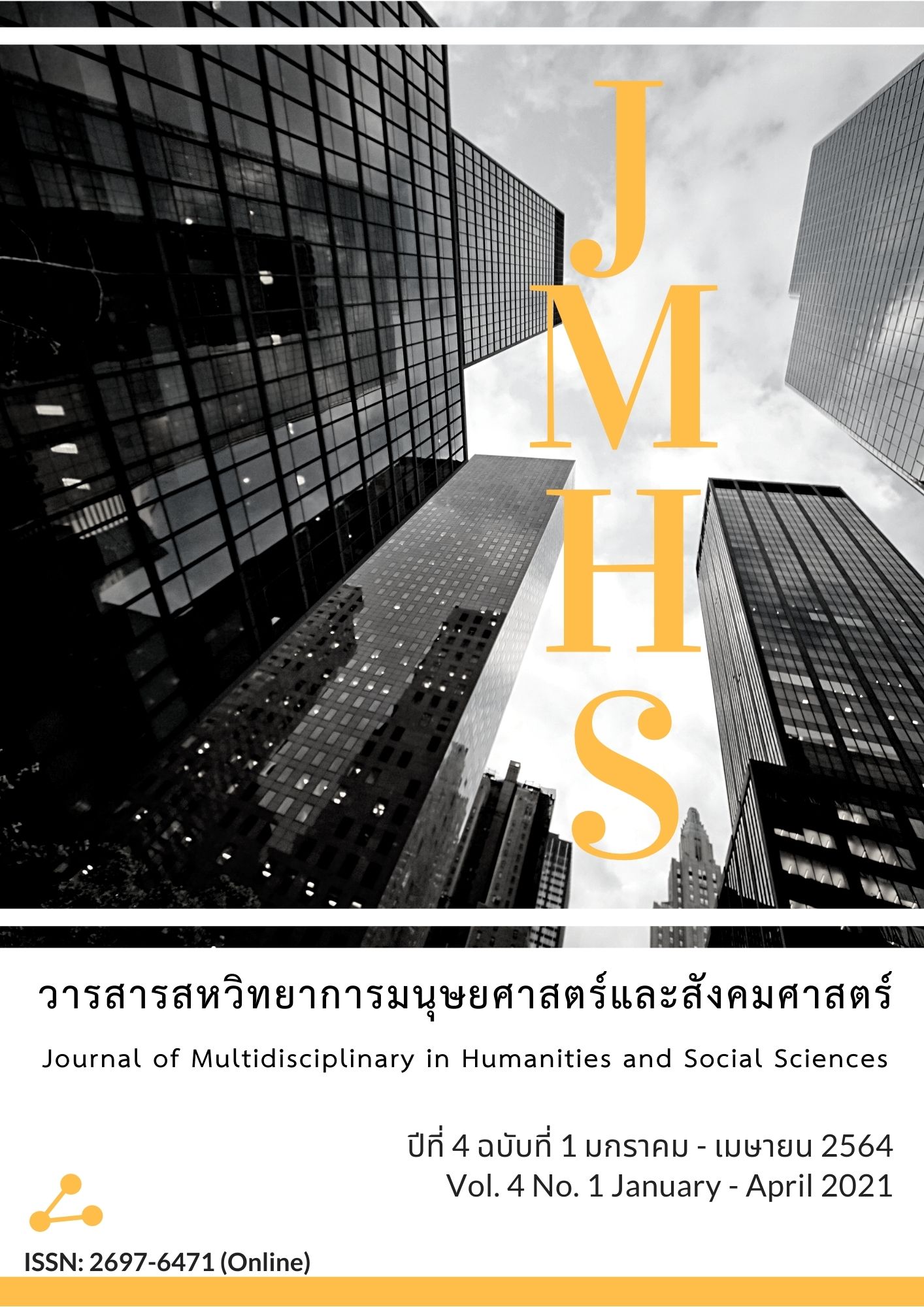Ecclesiastical Orders of Clerical Title in Thai Clergy
Main Article Content
Abstract
The purposes of this research were: 1) to identify the ecclesiastical orders of clerical title in Thai clergy, and 2) to examine the opinion of the monks on the ecclesiastical orders of clerical title in Thai clergy. This research was a retrospective research design. The data were collected from 3 sources: 1) primary source 2) secondary source and 3) contemporary data source, the instruments used for collecting the data were semi-structured interview form. Data were analyzed using content analysis.
The research findings revealed that: 1. The number of ecclesiastical orders of clerical title in the Thai clergy was based on clerical title. Their main responsibilities were to take care of six core tasks and one special task, which were 1) governing 2) Religious educating 3) public facilities 4) education welfare 5) propagation 6) public welfare, and special task: developing Phutthamonthon to be the World Buddhist Centre and others duties appointed by prelate.
2. The opinion of the monks on the ecclesiastical orders of clerical title in the Thai clergy in all aspects of the ecclesiastical orders system, duties, qualification and appointment process was found to be appropriate, since the appointment of ecclesiastical orders helps lighten the works of the prelates and they also agreed that the ecclesiastical orders should be appointed by the approval of each prelate/clerical titles.
Article Details
Views and opinions appearing in the Journal it is the responsibility of the author of the article, and does not constitute the view and responsibility of the editorial team.
References
ประกาศ เรื่อง สถาปนาสมณศักดิ์. (2563, 28 กรกฎาคม). ราชกิจจานุเบกษา. เล่ม 136 ตอนที่ 40 ข หน้า 4.
พระพรหมกวี (วรวิทย์ คงฺคปญฺโญ ป.ธ.8). (2554). วิทยาพระสังฆาธิการ เล่ม 2. ศูนย์บัณฑิตศึกษา มหาวิทยาลัยมหาจุฬาลงกรณราชวิทยาลัย วิทยาเขตนครราชสีมา.
พระปลัดสัมฤทธิ์ เทวธมฺโม (เปจิตตัง). (2553). บทบาทภารกิจพระสังฆาธิการผู้ทรงสมณศักดิ์ในจังหวัดขอนแก่นที่มีต่อการพัฒนาสังคมไทย (ปริญญาพุทธศาสตรมหาบัณฑิต, พระพุทธศาสนา). มหาวิทยาลัยมหาจุฬาลงกรณราชวิทยาลัย.
พระเมธีธรรมาภรณ์ (ประยูร ธมฺมจิตโต). (2539). การปกครองคณะสงฆ์ไทย. กรุงเทพฯ: สำนักพิมพ์มูลนิธิพุทธธรรม.
มาณี ไชยธีรานุวัฒศิริ และคณะ. (2541). บทบาทของพระสงฆ์ในยุคโลกาภิวัตน์: กรณีศึกษาภาคกลางและภาคตะวันออก (วิทยานิพนธ์มหาบัณฑิต) คณะสังคมศาสตร์และมนุษยศาสตร์. มหาวิทยาลัยมหิดล.
เรมวล นันท์ศุภวัฒน์. (ม.ป.ป.). การสั่งการ การมอบหมายงานและติดตามงาน. สืบค้นเมื่อ 6 ตุลาคม 2560, จาก www.portal.nurse.cmu.ac.th.
สมาน สุดโต. (2561). สมฌศักดิ์ บรรดาศักดิ์ ที่พระบาทสมเด็จพระเจ้าอยู่หัวพระราชทานพระสงฆ์, สืบค้นเมื่อ 21 สิงหาคม 2561, จาก www.posttoday.com/dhamma/106297
สันติ บุญภิรมย์. (2552). หลักการบริหารการศึกษา. กรุงเทพฯ: บริษัท ไทยร่มเกล้า จำกัด.
เสนาะ ติเยาว์. (2544). หลักการบริหาร. (พิมพ์ครั้งที่ 2). กรุงเทพฯ: มหาวิทยาลัยธรรมศาสตร์.
Aarcat. (n.p.). Why delegation is an important task to a manager? How to delegation Effectively. Retrieved January 4, 2019, from www.papercamp.com/essay/112033
Business Jargons. (n.p.). Delegation of authority. Retrieved October 28, 2018, from https://businessjargons.com/delegation-of-authority.html
Hersey, P., Blanchard, K. H., & Johnson, D. E. (1996). Management of Organizational Behavior: Utilizing Human Resources. (7th ed.). NJ: Pearson Prentice Hall.
Nyberg, D. B. (1999). Successful delegation skills enhance patient care. AORN Journal, 69(4), 851-856.
Valberg, C. (2015). 5 Tips to master the delicate art of delegation. Retrieved January 4, 2019, from www.entrepreneur.com/article/252806
Zwilling, M. (2011). Delegate Without Losing Control, Retrieved January 2, 2019, from https://www.caycon.com/blog/2011/08/startup-founders-walk-athin-line-on-delegation


